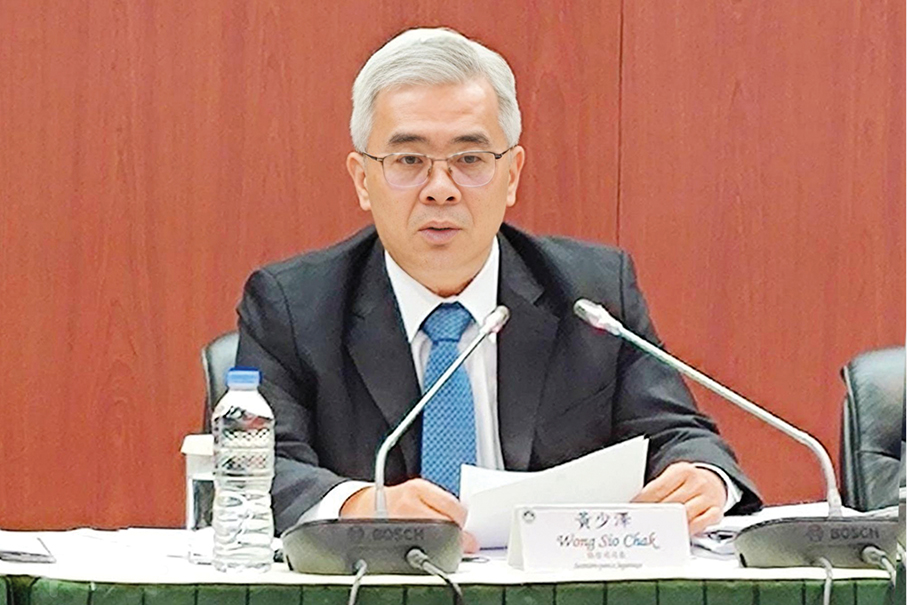Commentary
WASHINGTON – The United States has long boasted about its own brand of democracy and freedom, calling itself a “shining city on a hill.” To peddle American-style democracy, the country is putting together a so-called “summit for democracy.”
However, as US democracy has become dysfunctional and the American way of governance loses its appeal, many around the world have come to realize that the nation is no longer the “shining city” it once was.
DYSFUNCTION OF US DEMOCRACY
On Thursday, White House press secretary Jen Psaki told reporters that the upcoming gathering would discuss how “to stand up for democracy around the world.”
One wonders whether Psaki is aware of the sizable group of Americans who regard their democracy as dysfunctional.
Long gone is the era when Americans took pride in their democracy, one that was forced onto countries around the world with little consideration for reality on the ground.
A Yahoo News/YouGov poll conducted just before Independence Day in 2020 revealed that some 62 percent of Americans say the country is no longer a beacon and a model for the rest of the world.
More than one year later, a poll released on Wednesday by the Harvard University Kennedy School’s Institute of Politics showed 52 percent of young Americans believe that US democracy is either “in trouble” or “failing,” while just 7 percent deem it “healthy.”
The United States has been so obsessed with lecturing other nations on the merits of liberal democracy, but recent data showed some of the intended pupils have become less interested after judging their tutor’s own track record.
Survey results released in June by the Pew Research Center showed that most people in countries or regions the United States deemed “allies” view American democracy something they don’t aspire to.
Across all the surveyed, roughly 30 percent say the United States is currently a good example of democratic values, and a median of nearly half of the surveyed consider the American political system to be working “not too well or not well at all.”
ENTRENCHED FLAWS
According to a November poll from the Public Religion Research Institute, 68 percent of Republican voters are still unwaveringly convinced that victory was “stolen” from their “president” in an election one year ago where no evidence of significant voter fraud was found.
That means tens of millions of Americans continue to consider the occupant of the White House for almost one year to be unconstitutionally holding the nation’s highest office.
With the midterm elections one year away, the level of confidence in the election results to decide the fate of a notoriously divided Congress should raise alarm bells for electoral officials, many of whom, regrettably, are also extreme partisans.
A November poll from CNN showed that 65 percent of Americans overall are confident that next year’s congressional elections will be conducted fairly, but that includes a mere 31 percent who are very confident.
Fed with various kinds of outlandish conspiracy theories, Republicans are far more doubtful than Democrats, with only 40 percent saying they are confident that the upcoming contests will be carried out fairly compared to over 80 percent for Democrats.
Former US president Ronald Reagan loved to describe the United States as the “shining city on a hill” so much so that he used the phrase repeatedly throughout his political career.
In his presidential farewell speech, Reagan once again referred to the “shining city,” claiming “if there had to be city walls, the walls had doors and the doors were open to anyone with the will and the heart to get here.”
However, in the past few years, when the former US administration advocated for the building of walls surrounding the “shining city,” there were no planned doors for so-called “coyotes.”
Even though the construction of the border wall has been halted by the current administration, the migrants at the borders still face an uncertain fate.
Juxtaposing the photo of migrants being chased by border agents on horseback and an animation illustrating the “state-of-the-art” steel slat border wall, it’s hard to tell which one prevails in satirizing Washington’s self-image as a land of “liberty” and “opportunity.”
Meanwhile, social disparity, systemic racism and a growing wealth gap have torn the country further apart, compounding the crisis of American democracy.
DIMMING PROSPECTS
In the months since US President Joe Biden took up his post, the prospects for improving the American democracy have dimmed significantly, according to US magazine The New Yorker.
“Nineteen states have enacted thirty-three laws that make it more difficult for citizens to vote; a number of states have replaced nonpartisan election administrators with partisan ideologues,” it noted.
Republican legislatures in states that have begun to swing toward the Democrats, such as North Carolina and Texas, have redrawn electoral maps to favor Republicans and effectively disenfranchise communities of color, it added.
Noting that US democracy “is, at best, floundering,” the report said that it’s against this gloomy backdrop that the Biden administration is going to host a so-called “summit for democracy” this month.
“Democracy is in crisis ... citizens have lost the capacity for political influence because there are too many shortcuts that allow powerful actors to make political decisions outside the public,” wrote Cristina Lafont, a professor of philosophy at Northwestern University, in a November article in Spanish newspaper El País.
An opinion piece carried by The Washington Post in October offered another diagnosis of American democracy.
“In most functioning democracies, politicians don’t draw their own district maps. Their campaigns aren’t driven by effectively unlimited cash flowing in from special interests. Prominent media outlets aren’t headlined by conspiracy theorists or white nationalists,” it said.
“Citizens get a voice proportionate to population size. The judiciary isn’t politicized and senior judges don’t serve for life. Elections are managed by nonpartisan technical experts, not elected partisans,” it added.
“Central pillars of the US system are fundamentally undemocratic,” said the article. – Xinhua









